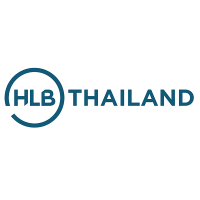
The Director-General of Thailand’s Revenue Department has released an important notification on transfer pricing, laying down the rules, procedures, and conditions to be followed by tax assessment officers when inspecting the pricing of related party transactions and determining any adjustments to be made.
The notification, formally known as “Notification of the Director-General of the Revenue Department on Income Tax (No.400)”, provides further clarity for taxpayers about the transfer pricing documentation that they are expected to maintain. It is effective for accounting periods commencing on or after 1 January 2021.
The release of the notification is a welcome move and indicates the intention of the Revenue Department to make Thailand’s Transfer Pricing laws consistent with the OECD Transfer Pricing Guidelines, with the ultimate objective of create a level playing field for all taxpayers and curbing profit shifting practices.
Adjustment of controlled transactions
Transactions between related parties – referred to as controlled transactions – shall be compared with comparable uncontrolled transactions between independent parties.
A tax assessment officer shall have the power to adjust the income and expenses of a taxpayer if the remuneration of a controlled transaction is different from the remuneration for a comparable uncontrolled transaction.
Comparable uncontrolled transactions
Controlled and uncontrolled transactions are comparable if none of the differences between the transactions could materially affect the factors being examined or if appropriate adjustments can be made to eliminate the material effects of any such differences.
According to a ministerial regulation issued in 2020, tax assessment officers shall first consider similar transactions that the taxpayer has made with third parties – internal comparables – if they are available.
In assessing the degree of comparability between controlled and uncontrolled transactions, the notification provides that the following factors shall be taken into account:
- Contractual terms
- Functions, Assets, Risks
- Characteristics of the property or service transferred
- Economic circumstances
- Business strategies pursued
Acceptable transfer pricing methods
Consistent with the OECD’s Transfer Pricing Guidelines the notification recognizes five acceptable Transfer Pricing methods:
- Comparable Uncontrolled Price (CUP) Method
- Resale Price Method (RPM)
- Cost Plus Method (CPM)
- Transactional Net Margin Method (TNMM)
- Profit Split Method (PSM)
Like the OECD’s Transfer Pricing Guidelines, there is no hierarchy recommended for selecting a method. The most appropriate method shall be used, after consideration of the methods’ strengths and weaknesses, appropriateness for the controlled transaction, availability of reliable information, and degree of comparability.
A taxpayer may use a method that is not one of the five acceptable methods, but only if they have assessed that the five acceptable methods cannot be used and that the other method selected is the most appropriate method. The taxpayer will need to notify the Director-General of the Revenue Department in writing in the year that the method is applied and explain the method used and why the five acceptable methods cannot be used, together with supporting documentation and evidence, for examination by a tax assessment officer.
Two or more transactions, which are so interlinked that they cannot be analyzed separately, should be aggregated and tested together under the most appropriate Transfer Pricing method. This approach generally applies to margin-based analysis such as RPM, CPM, TNMM.
Adjustment approach
Adjustment to the income or expenses in relation to a controlled transaction can be made by a tax assessment officer if the compensation receivable for the transaction is outside the interquartile range. However, the notification is silent on the point of adjustment, e.g., lower quartile, median, upper quartile, or whether anywhere in the interquartile range could be considered arm’s length (to find out more, read our insights on year-end adjustments).
Service transactions
Where the controlled transaction is for services, the compensation received shall be regarded as compensation received from an independent transaction if the following conditions are met:
- The compensation is for services actually performed.
- The service is beneficial or expected to be of economic or commercial benefit to the service recipient.
- It is a service that an independent company under comparable circumstances would pay to receive services from an unrelated company, or in order to have that service performed by its own internal departments.
- The compensation is the same as the compensation that would have been determined if dealing independently for comparable services.
Compensation for service transactions that is for the benefit of shareholder ownership shall not be considered compensation that would be required if acting independently.
This is consistent with the OECD Transfer Pricing Guidelines, which provides that shareholder activity would not be considered to be an intra-group service, and thus would not justify a charge to other group members.
Intangibles
In the event that the controlled transaction involves intangible property, the following issues should be taken into account when consider the compensation for the transaction:
- In the case of exploitation of intangible property, the duties that each contracting party is responsible for in respect of the development, improvement, maintenance, protection and the exploitation of the intangibles, by taking into account the assets used and the risks accepted.
- In the case of granting the right to use, sell or transfer intangible property, the benefits expected to be received, geographic restrictions, unique or non-exclusive features and the right to participate in the development of the intangible property.
Corresponding adjustments
If a tax assessment officer adjusts the income or expenses of a controlled transaction of one party, the officer has the power to make corresponding adjustments of the income or expenses of the counterparty to the transaction.
The first party must have accepted and paid the tax arising as a result of the adjustment or if it raised an objection, the matter must have been decided on appeal or by a court judgement and the party has accepted to pay the tax according to the judgement. Furthermore, the counterparty should not have concealed or given false information about the controlled transaction.
Adjustments should be made in accordance with the provisions of Thailand’s Double Tax Agreements if applicable.
Advance Pricing Agreements
For the benefit of avoiding double taxation under the double tax agreements that Thailand has made with other countries and to prevent transfer pricing disputes in the future, a Thai company transacting with related parties overseas can submit a request for an advance pricing agreement, for the determination of transfer prices over a fixed period of time in the future.
Read more : https://www.hlbthai.com/transfer-pricing-documentation-and-adjustment-rules-clarified/




